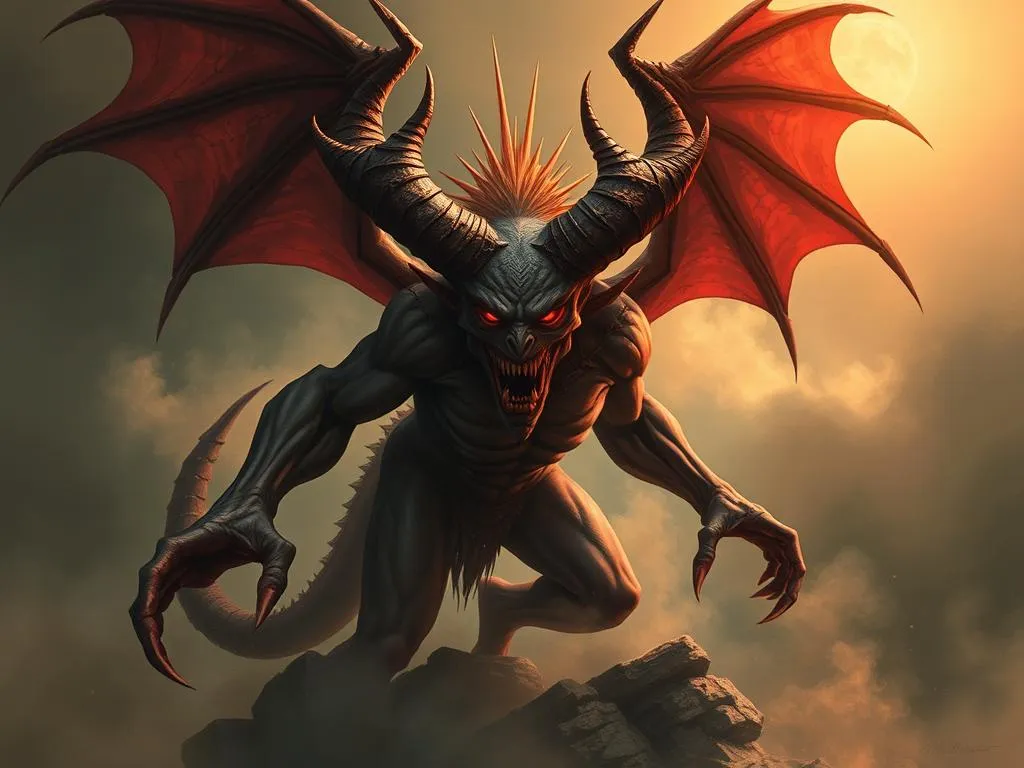Dream About Demon Named Dream Meaning: Exploring the Depths of Your Subconscious

Introduction
Dreaming about a demon can be a perplexing experience. When you dream of a demon named dream, it can feel particularly unsettling, but it’s essential to understand that dreams are often a reflection of our inner thoughts, feelings, and experiences. These dreams can reveal hidden fears, unresolved issues, or even aspects of your personality that you may not be fully aware of. Understanding the meaning behind these dreams can provide valuable insights into your waking life.
In this blog post, we will delve deeper into the significance of dreaming about a demon named dream. By exploring various interpretations and possible meanings, we hope to help you gain clarity and a better understanding of what your subconscious might be trying to communicate to you. Whether you frequently encounter demons in your dreams or this is your first experience, knowing the dream meaning can empower you to confront your fears and grow from them.
Understanding Demons in Dreams
1. The Symbolism of Demons
In the realm of dream interpretation, demons often embody negative emotions or aspects of ourselves that we wish to reject. They might represent fear, anxiety, guilt, or anger that we haven’t fully addressed in our waking lives. When you dream of a demon named dream, it could suggest that you are facing a particularly challenging situation or emotion that is manifesting in your dream as a personified figure.
Demons in dreams can also symbolize temptation or the struggle between good and evil within ourselves. This internal conflict might indicate that you are grappling with decisions in your life that could lead you down a path you fear. Understanding these symbols can help you confront the issues that are troubling you and work towards resolving them.
2. The Context of Your Dream
The context in which the demon appears in your dream can significantly influence its meaning. For example, if the demon is threatening or aggressive, it might reflect feelings of vulnerability or fear in your waking life. Conversely, if the demon is more of a trickster, it might hint at the need for you to approach life with a sense of humor and not take things too seriously.
Additionally, consider your feelings during the dream. Were you afraid, angry, or perhaps indifferent? Your emotional response can provide further insight into what the demon named dream represents for you.
3. Personal Associations with Demons
Dreams are highly personal, and the demon in your dream could have specific meanings based on your own experiences and beliefs. For instance, if you’ve recently encountered a stressful situation, the demon might symbolize that stress. Alternatively, if you have a personal history of trauma or anxiety, the demon could represent those unresolved feelings.
Reflecting on your personal associations with demons can lead to a deeper understanding of what your dream might mean. Ask yourself questions like, “What do demons symbolize for me?” or “Have I experienced any recent stressors that could be reflected in my dreams?”
4. Cultural and Historical Context
Throughout history, demons have been depicted in various cultures as malevolent beings. Ancient mythology often portrays them as entities that tempt humans away from righteousness. Understanding the cultural significance of demons can also provide context for your dream. For example, in some cultures, demons might be seen as tricksters, while in others, they are viewed as pure evil.
This cultural lens might suggest that your dream is bringing up themes of morality and ethics. Are you facing a moral dilemma in your waking life? The demon named dream could be a representation of this inner conflict.
Common Themes Associated with Demons in Dreams
1. Fear and Anxiety
One of the most common themes associated with demons in dreams is fear. If you dream of a demon named dream, it might reflect your subconscious fears manifesting in a tangible form. This could mean that you are feeling overwhelmed by anxiety or that you are grappling with fears that you have not yet confronted.
To alleviate these feelings, try to identify the sources of your anxiety. Are there specific situations or people in your life that you associate with fear? Addressing these sources in your waking life can help reduce the presence of demons in your dreams.
2. Guilt and Regret
Another significant theme that might arise from dreaming about a demon named dream is guilt. If you have made choices in your life that you regret, a demon could represent the feelings of guilt that you carry with you. This dream might be urging you to confront these feelings and seek forgiveness, either from yourself or others.
Reflect on past decisions and consider if there are unresolved issues that need to be addressed. Acknowledging and processing these feelings can lead to emotional healing and a reduction in similar dreams.
3. Conflict and Struggle
Dreaming of a demon named dream could also signify an internal struggle. You might be facing conflicting desires or emotions that are causing tension in your life. This internal conflict can manifest as a battle against the demon, symbolizing the struggle for control over your thoughts and actions.
To address this internal conflict, consider journaling or talking to a trusted friend about your feelings. Expressing your thoughts can help clarify what you truly want and need, ultimately leading to resolution.
4. Transformation and Growth
While demons may initially seem like negative symbols, they can also represent the potential for transformation and growth. Dreaming of a demon named dream could indicate that you are on the brink of a significant change in your life. This change may require you to confront your fears and insecurities, ultimately leading to personal growth.
Embrace the challenges that come with transformation. Recognize that while it might be uncomfortable, facing your demons can lead to a more fulfilling and authentic life.
Practical Steps to Understand Your Dream
1. Keep a Dream Journal
One effective way to gain insights into your dreams is to keep a dream journal. Write down your dreams as soon as you wake up, noting any details, emotions, and context. Over time, you may begin to notice patterns or recurring themes that can shed light on the meaning behind your dreams.
2. Reflect and Meditate
Take time to reflect on your dreams and meditate on their meanings. Find a quiet space where you can sit comfortably and focus on the feelings and images from your dream. Meditation can help you connect with your subconscious and uncover deeper interpretations of your dreams.
3. Seek Professional Guidance
If you find that your dreams are causing you distress or you struggle to interpret them on your own, consider seeking professional guidance. A therapist or a dream analyst can provide valuable insights and help you navigate the emotions and themes present in your dreams.
Conclusion: Key Takeaways
Dreaming about a demon named dream can be an unsettling yet insightful experience. These dreams often represent fear, anxiety, guilt, or internal conflict that needs to be addressed. By understanding the symbolism of demons and reflecting on the context of your dream, you can uncover valuable insights into your waking life.
Remember that dreams are a natural part of the human experience, and they can offer guidance and clarity. Keeping a dream journal, reflecting on your dreams, and seeking professional guidance are all practical steps to help you navigate and understand your dreams better. Embrace the journey of self-discovery, and don’t shy away from facing your demons—they often hold the key to your personal growth and transformation.







